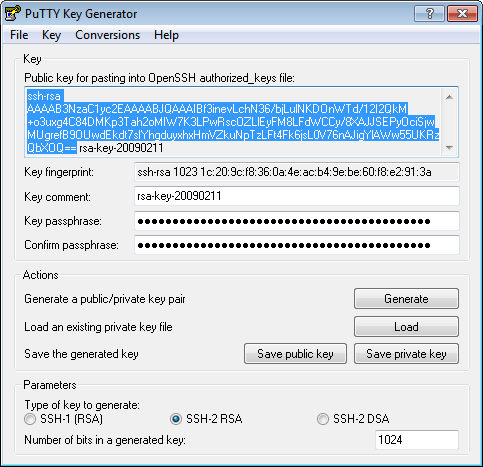Arch Linux Generate Ssh Host Keys
This is a tool to remaster the Arch Linux installation ISO image. Itadds the following stuff:
- 5s bootloader timeout to boot unattended without having topress Enter.
- OpenSSH installed and sshd service started on boot.
- Your personal SSH pubkeys burned into the iso image so you canlogin remotely.
- Your personal WiFi passwords burned into the iso image, andconfigures WiFi on boot. (This is currently a bit flaky, wiredworks fine)
- avahi-daemon publishes the availability of a service called'archiso', this lets you scan for the machine on your networkwithout having to know the IP address.
- Jun 18, 2013 I thought the installation would take care of key-generation as nothing is mentioned on the install section of the wiki SSHD. Should the install section on the wiki contain a bunch of.
- Openssl rsa -in sshhostrsakey -outform pem sshhostrsakeypem works as well, if you prefer to use existing keys. EDIT: bullshit, the key I tested worked anyway and didn't changed, sorry!
What is this useful for?
What is the New way to generate SSH Keys in Kali Linux? If this is your first visit, be sure to check out the FAQ by clicking the link above. You may have to register before you can post: click the register link above to proceed. This article provides steps for connecting to a cloud server from a computer running Linux® or MacOS® X by using Secure Shell (SSH). It also discusses generating an SSH key and adding a public key to the server. SSH is a protocol through which you can access your cloud server.
Arch Linux Generate Ssh Host Keys Windows 10
The regular Arch iso doesn't have an SSH server, nor does itautomatically setup wifi - you need to plug in a keyboard and monitorto use it. I find this inconvenient.
This tool is useful for when you want to install Arch Linux on aremote computer without needing a keyboard/mouse. You connect remotelyvia SSH instead. This will create an iso that contains your personalSSH public keys as well as your WiFi passwords. So this is apersonalized Arch Linux installer CD. Download keygen software license key generator.
How to remix your own arch iso
Clone this repository:
In the archiso-ssh-remix directory you will find the build-iso.shscript as well as a directory called demo. Taking a look inside thedemo directory first you will find two asset files:
authorized_keys- This is the file that should contain all yourSSH public keys that will be allowed to connect to the archisohost. The key you want to copy to this file is usually contained in~/.ssh/id_rsa.pubwpa_supplicant.conf- This is the file that should contain allyour WiFi SSID and password information. There are some examples inthe demo version of this file, but also check outman wpa_supplicant.conf
The demo directory is just that, a demo. You should create your owndirectory (call it whatever you like) with your own configurationfiles.
Now run the build-iso.sh script to build your iso:
Replace the -i parameter with the path to the original Arch Linuxinstaller iso file. Replace the -o parameter with whatever you wantto call your new iso image. Replace demo with the name of thedirectory you created.

Using the ISO
To transfer the ISO image to a USB drive (eg. /dev/sdb) (Careful, makesure you use the right device name as this will wipe the drive!):
Before you boot up the computer with the USB drive, run the scan.sh How to download outlook for mac 2015. tool on another computer in your same network. It won't outputanything at first, but once the machine you're installing on isfinished booting, you should see the IP address printed out. This isuseful since the Arch iso gets an IP address via DHCP and you wouldn'totherwise know what address to connect to.
scan.sh requires avahi-daemon, so if you don't have that yet install it:
Once the machine is booted, and you know it's IP address, you can sshto it. The server's SSH keys change everytime the iso boots, so itdoesn't make any sense to store the keys, the following ssh commandwill disable it for the session:
Alternatively, depending on how your LAN DNS is setup, you may findthat the name archiso automatically resolves to the machine as itboots up. If that's the case, you don't need the scan tool (althoughstill useful to tell when it's up), and you could put the followinginto your ~/.ssh/config:
Then all that would be necessary is to run:
Mac Generate Ssh Key
You should be able to login without any password assuming you have thesame SSH key setup locally as you have burned into the iso image.